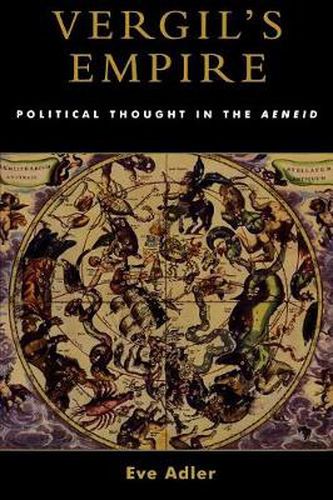Readings Newsletter
Become a Readings Member to make your shopping experience even easier.
Sign in or sign up for free!
You’re not far away from qualifying for FREE standard shipping within Australia
You’ve qualified for FREE standard shipping within Australia
The cart is loading…






Vergil’s Empire is an interpretation of the political thought of Vergil’s Aeneid . The book argues that Vergil presents in the Aeneid the theoretical foundations of a new political order, a specific form of world government or universal empire, aimed at solving the problem of the conflict between scientific enlightenment and ancestral religion in the form in which this problem was presented by Lucretius’ poem De Rerum Natura . The book proceeds by a close analysis of the Aeneid , concentrating on Vergil’s response to the physics and psychology of Lucretius’ Epicurean doctrine and its political implications. The book has three parts. Part 1, The Foundations of Carthage and of Rome , discusses Vergil’s founding intentions in connection with his portrayal of Carthage and Rome as ideal types of the two alternative foundations of cities, atheistic science and ancestral religion. Part 2, The Greater Order of Things , proceeds from Vergil’s critique of Carthage to his positive teaching on the nature of the well-founded world empire. Part 3, The Image of Piety , treats Vergil’s portrayal of Aeneas’s tragic heroism in contrast with the heroism of not only Homer’s Achilles and Odysseus but also of Lucretius’s Epicurus.
$9.00 standard shipping within Australia
FREE standard shipping within Australia for orders over $100.00
Express & International shipping calculated at checkout
Vergil’s Empire is an interpretation of the political thought of Vergil’s Aeneid . The book argues that Vergil presents in the Aeneid the theoretical foundations of a new political order, a specific form of world government or universal empire, aimed at solving the problem of the conflict between scientific enlightenment and ancestral religion in the form in which this problem was presented by Lucretius’ poem De Rerum Natura . The book proceeds by a close analysis of the Aeneid , concentrating on Vergil’s response to the physics and psychology of Lucretius’ Epicurean doctrine and its political implications. The book has three parts. Part 1, The Foundations of Carthage and of Rome , discusses Vergil’s founding intentions in connection with his portrayal of Carthage and Rome as ideal types of the two alternative foundations of cities, atheistic science and ancestral religion. Part 2, The Greater Order of Things , proceeds from Vergil’s critique of Carthage to his positive teaching on the nature of the well-founded world empire. Part 3, The Image of Piety , treats Vergil’s portrayal of Aeneas’s tragic heroism in contrast with the heroism of not only Homer’s Achilles and Odysseus but also of Lucretius’s Epicurus.